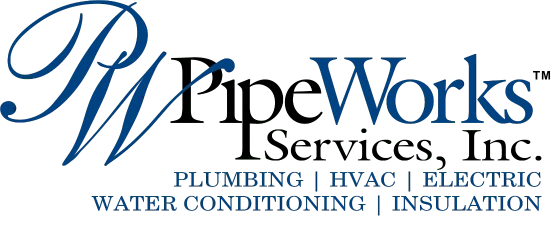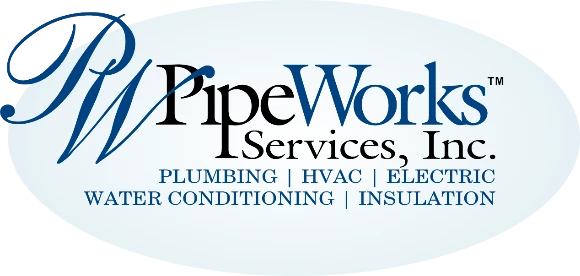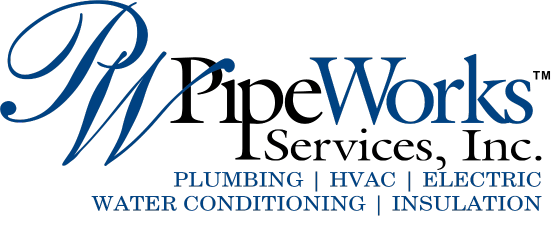Insulation in your Chatham, NJ, home is designed to help minimize the loss of conditioned air. It can also protect your home from the air outside, ensuring that you can maintain a healthy and comfortable indoor environment throughout the year. Whether you’re dealing with the scorching temperatures of the summertime, or the snow is starting to blow, it may be time to consider the current level of insulation in your home. Attics are a common location for additional insulation, but how do you know how much to add? Is there the potential to put too much insulation in your attic?
Why Are Attics Insulated?
While you have insulation behind the drywall in the various living spaces of your Chatham home, the attic is also a very common place for insulation to be installed. Areas around your windows and doors can allow for some air to escape, but the attic tends to be the biggest risk. Also, heat rises, causing an extreme shift in temperature once you reach your attic. Insulation can be beneficial, and there is also the option of additional ventilation to protect the indoor air quality of your home.
The Benefits of Attic Insulation
There are several benefits associated with attic insulation aside from temperature control. Ample insulation in your attic can extend the lifespan of your roof. By creating a barrier between the outside temperature and the inside temperature of your home, this reduces the risk of thermal expansion and contraction. If this expansion and contraction takes place frequently over the course of many years, this can damage your roof. Investing in a new roof is a major investment, so it’s wise to protect this structure for as long as possible.
Attic insulation can also protect your heating and cooling systems. If you allow a large amount of air transfer to occur between the inside of your home and the exterior, this will lead to your heating and cooling system becoming overworked as it tries to keep up with the temperature that you have your thermostat set to. Over time, you may experience more frequent repair needs. You may also shorten the lifespan of your equipment, leading to a premature, costly replacement.
Can You Add Too Much Insulation?
When insulating your attic, there is the risk of adding too much product. The type of product will determine how much should be used, and one of our professionals can help decide the best plan of action.
Hindering Function
If you add too much insulation to your attic, it can decrease the overall function of the product. The goal is to use just the right amount of product, so you still experience healthy indoor air, proper ventilation, and temperature control.
Mold and Mildew Growth
Having too much insulation in your attic can allow for the accumulation of moisture. This leads to mold and mildew growth, which can be extremely bad for your health. Mold grows and spreads very quickly. If you and your family are exposed for any length of time, this can lead to symptoms such as headaches, fatigue, inflammation throughout the body, mood changes, insomnia, etc. Mold and mildew can also create a very musty smell in your attic.
Damaging Framing
We touched briefly on the expansion and contraction that can occur on your roof when you don’t have enough insulation. The same can happen to the framing of your home if you have too much insulation in your attic. This can compromise the structural integrity of your home. This can also lead to wood rot over time.
Types of Insulation
Insulation is rated using the R-value scale. The R-value refers to the amount of resistance to heat flow that a product has. Most attics in the Chatham area have R-38 insulation. This product is about 10 to 14 inches thick. This is the right amount of insulation to prevent excessive temperature fluctuations. It can also save you a lot of money on your monthly utility bills. In the long run, investing in an attic insulation upgrade can pay for itself.
Spray foam insulation is also an option that has become more popular in recent years. This product is sprayed onto the surfaces of your attic. As it dries, it expands slightly. Once cured, spray foam insulation provides a very tight seal against the outside. This product is also beneficial if you or someone in your home suffers from allergies. Because such a tight seal is achieved with spray foam insulation, particulate matter has a very hard time getting through, if at all. You may also experience better humidity control with spray foam insulation.
It’s also important to note that choosing the right insulation is necessary, but you also want to make sure that the product is installed properly. You can’t just stuff insulation in various nooks and crannies, expecting it to do its job. The product should be firmly placed against the various surfaces of your attic that are on exterior walls and ceilings. Headers and rim joists are also areas to address. Working with insulation can be hazardous to your health if you’re not properly protected. It’s best to leave this job to the professionals.
Cellulose insulation is an eco-friendly insulation material that is made using recycled paper. It provides insulation against temperature fluctuations, but it can also boost sound insulation. While it may sound like a risk, cellulose insulation has been treated so that it is flame resistant.
What Homes Need Additional Insulation?
It’s common for older homes to lack enough insulation. The materials we use today are far superior to those available decades ago. Also, we know much more about how much product to use, where to place the product, the importance of insulation, etc. However, newer homes are often under-insulated as well. This is at the fault of the builder, as many of them try to save money by only insulating homes at the bare minimum.
If you notice that your attic’s temperature is very different from the rest of your home or your experience drafts in this area, it may be time to have a professional assess your home for a potential insulation upgrade. Also watch out for moisture accumulation, excessively high heating or cooling bills, stuffy rooms in the summer, and very chilly rooms in the winter.
Professional Assistance in Chatham
It can take some climbing through your Chatham attic to determine how much insulation you have and what kind of improvements can be made. Reach out to our team here at Pipe Works Services for assistance. We can help you determine the type of insulation that you should invest in, as well as how much should be used. We will complete the installation process for you, ensuring that your home experiences increased comfort and protection. In addition to insulation services, we also offer the installation, annual maintenance, and repair of heating and cooling equipment. We also offer a wide variety of plumbing and electrical services, indoor air quality assistance, commercial services, and much more. Contact us today to schedule an appointment and ask us about our home energy audit services.





